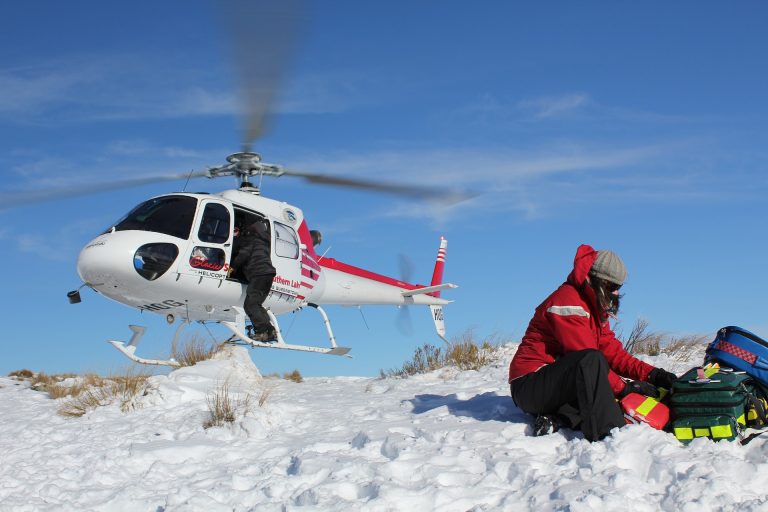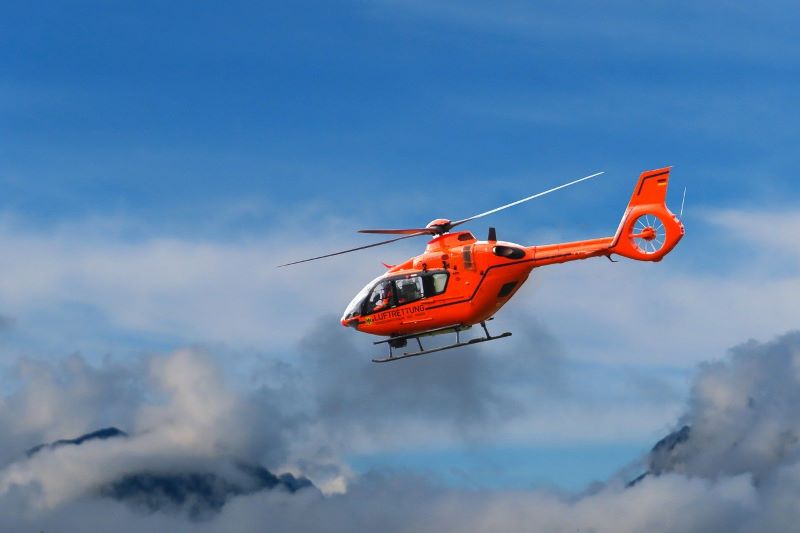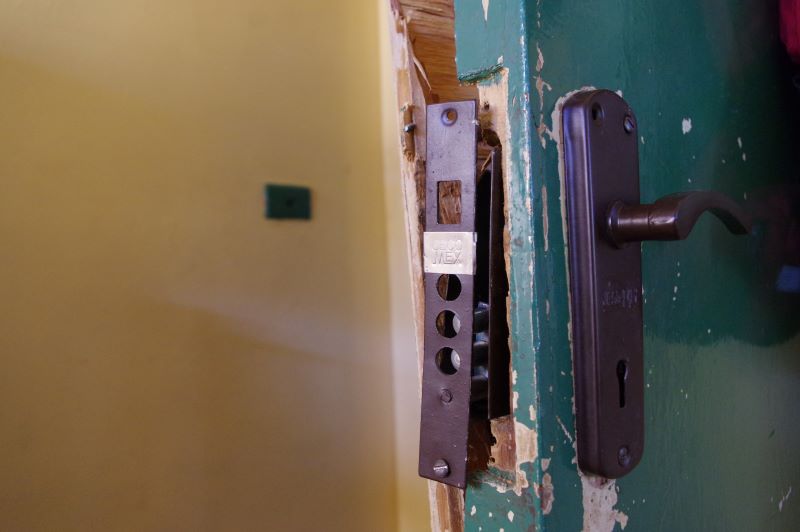When travelling, in the event of accident or illness, is a special travel insurance useful?
The risk of having an accident abroad, if you don’t do anything stupid, is not much higher than elsewhere. But when it is an accident or a serious illness that happens, at the antipodes of home, there are no 911, no 24-hour emergency services and doctors who are not always very professional. That’s when a special travel insurance is really useful! I don’t recommend any insurance here. It’s a complex field, the offers are many and varied. They all have one thing in common, however: they are expensive! It’s often a budget between 800 and 1000€. It is therefore a sum that can make the traveller think about taking out insurance that (one hopes) will never be used. Reviewing the why and the how will allow you to take stock of what is really important to you and better study the offers on the market.
If you want to travel with peace of mind, do you have to pay for expensive insurance? It depends on the nature of the problem!
Travel insurance is only of interest in serious cases: an urgent and complex operation, a serious illness, a serious accident. For tourists, there are local solutions for the most serious ailments
There are very good practitioners all over the world. Stitches on a deep wound should not force you to come back to France again. Neither should a tourista of a few days, a severe bronchitis or a hives attack. You will find what you need in your first aid kit or in very good pharmacies. Abroad, they are generally well stocked and often sell the same products as in France. For a wound that gets infected, you will find Fucidine (antibiotic cream, Leo laboratory) without a prescription and cheap almost everywhere in the world.
Can’t find what you need to treat yourself? Internet will help you to find in the country you are visiting, the equivalent of the treatment you are used to at home.
Do you have a cut that needs stitching? There’s little to worry about as long as you can make sure that the material used is sterile. Afterwards you will monitor the healing process and disinfect regularly. It’s up to everyone to see.
With all-inclusive travel insurance, you will feel protected and well advised
Care, operation, treatment, repatriation, compensation (also for third parties to whom you may have caused problems), travel insurance takes care of everything
You will also be exempted from paying in advance for any medical intervention. No rush for cash or risk of being scammed on the bill. Remember that in many countries, without insurance, you will have to pay cash to be hospitalised. Stories of travellers who have had to take out a credit of 15000 to 20000€ to save their leg or their life bloom on the sites dedicated to travel. So it is no exaggeration to say that the risk is real. A repatriation by helicopter in the Himalayas for a damaged knee or an altitude sickness is very expensive and in the mountains, you have no choice!
You should also know that in many countries, if you do not show your credit card or solid proof of solvency, you will not be allowed to board the ambulance or access the operating theatre.
If you are going to a country where there is a serious health risk
There are, however, some regions where it is better not to be hospitalised. In some countries the hospital is like a prison: it is better not to have to go in. Syringes used and put back in new plastic, awful hygienic conditions and a surgeon with a moped mechanics diploma or financial scam: “you have a serious infection, it’s urgent, it will cost 1000€ cash” makes you think! Choosing a travel insurance in this type of country can therefore be worthwhile in case of a big problem but it will also allow you to travel with peace of mind.
You are travelling to countries where there are no health risks but you are “sensitive” or anxious by nature
Having taken out travel insurance will make the trip more serene. Worrying all the time about everything you eat and everything you do, is that really the purpose of the trip?
Insurance is also someone to call who can advise and reassure you
Panicked, injured, in shock or gripped by pain, everything becomes more complicated. With insurance you will have a contact person to guide you. Most have a 24-hour telephone line. Talking to someone who speaks your language and knows the country can be of great comfort and will help you make the right choices.
It is therefore absolutely necessary to take out special travel insurance?
Don’t take out insurance if your trip lasts less than 6 months: your credit card will take care of it!
The insurance linked to your credit card will also be very useful for obtaining visas along the way

With travel insurance, what are the options in the event of a major problem?
The operation or treatment can be carried out in the country where you are located
Hospitals can be trusted, you can be treated there with complete peace of mind. The costs will be covered by your insurance.
Getting transport and treatment in the neighbouring country
Hospitals are not recommended in the country you are currently in, but in the neighbouring country, 1 hour’s flight or 4 hours by bus are trusted institutions. The insurance will pay for the transport.
Getting back home in emergency
This is serious! You or one of your travelling companions cannot be treated on the spot and the care is important for your health or survival. You therefore need a medical repatriation. The travel insurance will organise your return and will propose an establishment that can take care of you.
There are different types of medical repatriation
Non-medical repatriation
Injuries that force you to return to France do not require medical assistance during transport. This is the case, for example, of a broken arm.
Medicalised repatriation
It’s the opposite, you need a nurse or a doctor to keep you alive! For example a stroke, a heart attack, a serious accident. Let’s not forget that evacuation by medical plane is reserved for the most urgent cases, such as a serious road accident. A medical plane is then chartered to transport the unfortunate person.
How does it work to be repatriated?
You must contact your insurance company, which will contact the medical professionals surrounding the injured person. If the situation requires it, they can also send a doctor on the spot. It is on the basis of all this information that your insurance will define the type of repatriation you need.
How to get reimbursed for repatriation or care abroad?
With a special travel insurance
With your “round-the-world” travel insurance, it is rare that you will have to pay the costs in advance.
To be reimbursed with your bank card by the Visa or Mastercard insurance
Medical repatriation is an insurance automatically included when the trip has been paid for by Visa card. It covers: the cardholder, his/her children, grandchildren under the age of 25, spouse or partner (declare before leaving, otherwise it doesn’t work). It will be necessary to call the Visa centre and open a claim file.
The totality of the expenses incurred by the patient is reimbursed by the insurance but there are always conditions (maximums, situations, bank contract). It is therefore necessary to take stock of these paragraphs before leaving in order to know what to expect.
Getting reimbursed by your social system
A lot of paperwork, certainly, but ask for more informations about in your home country before leaving.
What happens if you have an accident and are not insured at all?
If you have not taken out such insurance, what happens?
It is everyone’s individual responsibility to provide repatriation insurance. In emergencies or desperate cases, the Ministry of Foreign Affairs can, despite the absence of insurance, exceptionally organise repatriation. Otherwise, you will have to break your piggy bank. Sometimes you have to take out a loan for the next 10 years or break into a savings plan so that you don’t freeze to death in the mountains! The costs incurred are entirely YOUR responsibility.
Can the consulate or embassy help you?
In the event of great misfortune, the consulate can contact your family. Together they will be able to think about and organise the best way to save your life: return home or hospitalisation in the country.
Warning: the consulate is not a bank, it will not pay anything for you!
What if I am a victim of theft while travelling?
Be sure to read the terms and conditions of compensation. Advertisements are often tempting “up to 4500€ reimbursed”. Of course, but when you are suddenly robbed like camera + phone + mobile phone, the insurance will be limited to this amount even if the damage to all your stuff combined is equivalent to 7000€.
If your cameras are new, it is of course very advisable to insure them… if they are not already covered by insurance when you buy them. The major retailers offer it and this insurance against theft is sometimes much cheaper than specific insurance.
To find out what to do when everything disappears, the article “Your belongings have been stolen, how to deal with it” explains what you need to know and do before and after the disaster.
How to be well prepared for the big trip?
You are penniless, without passport, or without all your belongings, you need to stay cool and manage: follow the guide!

